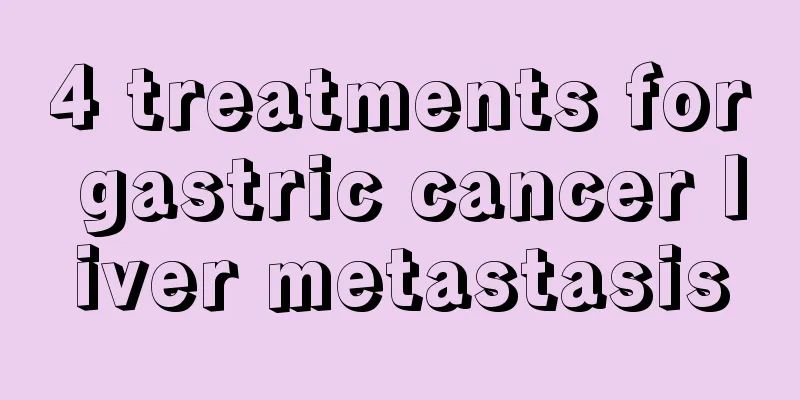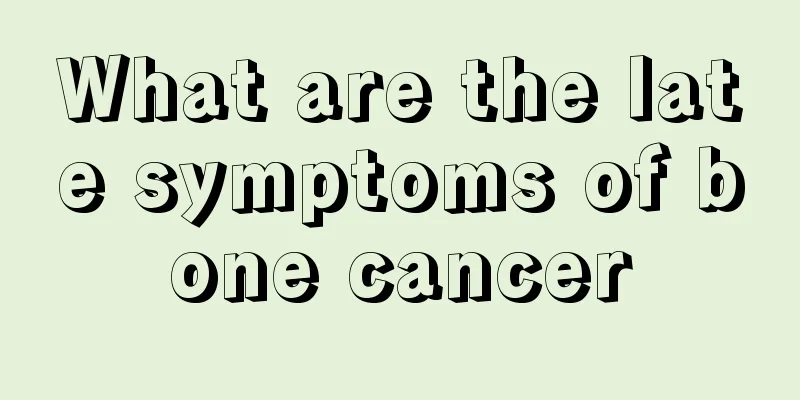4 treatments for gastric cancer liver metastasis

|
With the improvement of medical technology, although the survival of gastric cancer patients has been significantly improved, 5% to 15% of patients will still have liver metastasis, which means that the disease has entered the late stage, the survival period is shortened, and the prognosis is poor. Generally speaking, gastric cancer patients with liver metastasis can have four treatment methods: surgical treatment, radiofrequency ablation, hepatic artery chemoinfusion/hepatic artery chemoembolization, and systemic chemotherapy. Surgery Gastric cancer patients often have lesions outside the liver when they have liver metastasis, such as peritoneal metastasis, lymph node metastasis, and distant metastasis of other organs. Therefore, patients without peritoneal metastasis and gastric cancer lesions without vascular and lymphatic invasion can consider liver lesion resection, and should consider those. For example, metastatic lesions located in one lobe of the liver or metastatic lesions with a diameter of less than 4 cm and isolated liver lesions can be surgically resected, but adjuvant chemotherapy is required after surgery. Radiofrequency ablation As an alternative to surgery, radiofrequency ablation can be used as a palliative treatment for patients with advanced gastric cancer who are difficult to operate on. For patients with tumors less than 2.5 cm in diameter, the destruction rate of radiofrequency ablation can reach 90%, while more than half of patients with tumors greater than 5 cm in diameter cannot be controlled by radiofrequency ablation. Hepatic arterial chemoinfusion/hepatic arterial chemoembolization The catheter is selectively or super-selectively inserted into the target artery supplying the liver tumor for hepatic arterial chemotherapy perfusion, thereby forming a local high concentration of drugs in the liver; or an appropriate amount of anticancer drugs and embolic agents are injected to occlude the target artery, which plays the role of chemoembolism and causes ischemic necrosis of tumor tissue. Hepatic arterial chemotherapy perfusion and embolization are mainly used to treat liver metastases that cannot be surgically removed, and have fewer toxic and side effects. Systemic chemotherapy Liver metastasis of gastric cancer indicates that the patient has entered the late stage of the disease. Although there are several treatment options mentioned above, systemic chemotherapy or molecular targeted drug therapy is still the basic treatment for these patients. |
<<: Indications for radical radiotherapy of liver cancer
>>: Elderly lung cancer patients should avoid three treatment misunderstandings
Recommend
My teeth suddenly became crooked when I was 30 years old
People will stop growing teeth around the age of ...
What to do if your stool is green
When babies are a few months old, their diet is m...
How to test tap water quality?
For people living in cities, every family has tap...
What shoes look good on a short person
Even though the living standards are getting high...
There is a pimple on my eye socket
Eyes are the windows to the soul and the most imp...
Side effects of blue light treatment for acne
Looking through the various methods of removing a...
What to do if laryngeal cancer metastasizes to the neck
What should I do if laryngeal cancer metastasizes...
What could be the possible cause of severe headaches?
For patients, if they experience severe head pain...
How to distinguish whether hyaluronic acid is real or fake
I believe everyone has heard of the substance cal...
How much does chemotherapy for small cell lung cancer cost? There are four factors that affect the price
Everyone is familiar with lung cancer. The key to...
What is the value of red scale syzygium
Many people may not know about the red-scaled syz...
What is the second stage of lymphoma
Lymphoma is the malignant transformation of lymph...
Playing with mobile phones is a disease, prevention and treatment are effective quickly
Mobile phones are essential tools in life and are...
What will happen if you don't resist sleep paralysis
The more you struggle when you are sleep paralysi...
Urine routine ketones
When it comes to ketone bodies in routine urine t...









